Dr. John Vargo's top picks
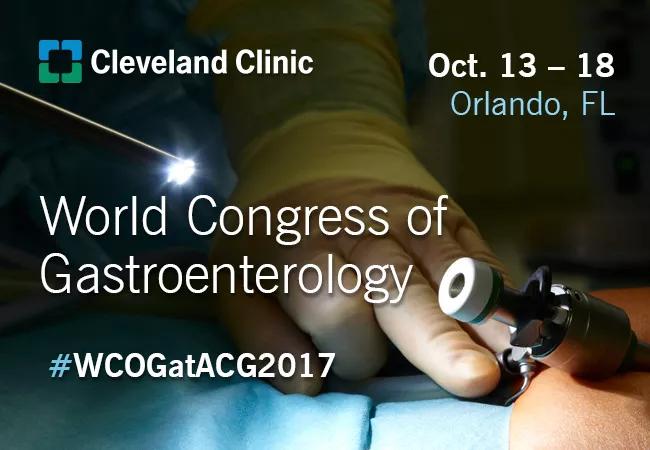
“Holding the World Congress of Gastroenterology meeting at the American College of Gastroenterology’s 2017 Annual Meeting will be a great opportunity for everyone to exchange ideas with colleagues from a wider variety of countries,” says John Vargo, MD, MPH, Chair of Gastroenterology & Hepatology at Cleveland Clinic.
Advertisement
Cleveland Clinic is a non-profit academic medical center. Advertising on our site helps support our mission. We do not endorse non-Cleveland Clinic products or services. Policy
“Frankly, I will enjoy the international flair,” he says.
With an agenda packed with courses, symposia, plenary sessions and hands-on training, selecting an itinerary will be a challenge. Dr. Vargo suggests including offerings on the following hot topics and trends:
Cleveland Clinic staff and fellows will be making around 20 presentations at ACG this year. Dr. Vargo recommends taking special note of the following five:
1. “Efficacy and safety of drainage of pancreatic fluid collections using metal stents in patients with cirrhosis.” Prabhleen Chahal, MD
This is a case series of five patients with pancreatitis complicated by pseudocyst or walled-off necrosis, who underwent treatment with an expandable metal stent to drain collections. Three experienced significant complications from stenting, including bleeding, shock with ICU admission, acute cholangitis and death.
Advertisement
“Using expandable stents appears to put these patients at a procedure-related risk, thus tipping the risk-benefit ratio. Approach these patients carefully,” Dr. Vargo advises. “Traditionally, we have used plastic stents for this indication. The question is now, should we go ‘old school?’ I think we need randomized trials to answer this question.”
2. “Use of a sleep positioning device significantly reduces esophageal acid exposure in lung transplant recipients.” Scott Gabbard, MD
GERD is a known risk factor for the development of acute or chronic rejection after lung transplantation. This single-center, retrospective trial of 27 patients evaluated the efficacy of a sleep-positioning device to minimize reflux. In the subset patients who used the device nightly, pH testing revealed a significant reduction of esophageal acid. “When used with antireflux medications, this device exhibited added benefit,” says Dr. Vargo.
3. “A randomized, placebo-controlled, double-blind, crossover trial of buspirone in functional dysphasia and ineffective esophageal motility.” Scott Gabbard, MD
Motility abnormalities associated with dysphasia are not related to reflux and are difficult to control. This 10-patient study evaluated whether an antidepressant known to modify visceral sensation would produce an improvement in the sensory aspect of dysphagia, as well as motility. Patients spent two weeks on one medication, followed by a washout period before crossing over to the other medication.
“Quality of life and dysphasia questionnaires revealed no statistically significant difference, nor was any significant difference seen on high-resolution manometry,” says Dr. Vargo.
Advertisement
4. “Common bile duct dilation after bariatric surgery.” Amit Bhatt, MD
Imaging studies conducted after bariatric surgery have noted increased dilation in the common bile duct without an obvious cause. This single-center retrospective study looked at changes in bile duct diameter three months following 76 sleeve gastrectomy and 193 Roux-en-Y procedures. All imaging studies were reviewed by staff radiologists. Greater dilation was seen in Roux-en-Y patients than in sleeve gastrectomy patients, with an average increase of 1.4 mm in diameter. The finding was seen in patients with and without cholecystectomy.
“We think nerve pathway disruption may be affecting the basal pressure of the sphincter of Oddi, and may be doing so more after a Roux-en-Y procedure than after a sleeve gastrectomy,” says Dr. Vargo. “Results of this unique study suggest we should not be surprised to see biliary dilation after bariatric surgery. The finding should not warrant any further study, unless the patient exhibits warning signs or symptoms.”
5. “Validity of noninvasive fibrosis scores to detect advanced fibrosis in type 2 diabetics with suspected NAFLD.” Amandeep Singh, MD
Several scoring systems are available to help predict the presence or absence of fibrosis in nonalcoholic fatty liver disease (NAFLD). This study evaluated the liver biopsies of 1157 patients with type 2 diabetes mellitus and NAFLD. A variety of patient variables, including BMI, hyperlipidemia, liver disease, use of cholesterol-lowering medications and biochemistry, were studied.
Advertisement
Commonly used fibrosis scoring systems had a very poor sensitivity for predicting advanced fibrosis in these patients. “All liver disease is not created the same. It appears we have to develop a different fibrosis scoring system to predict advanced fibrosis in patients with NAFLD,” says Dr. Vargo. “It’s back to the drawing board.”
This year’s presidential address, “Physical Wellness: A Critical Mission,” may not expound on the science or practice of gastroenterology, says Dr. Vargo, but make no mistake: Dr. Carol Burke’s Oct. 13 speech will touch on an issue of vital importance: physician burnout.
“We must all focus on how to balance work and life. There is no course in medical school or in graduate medical education to help physicians with this,” he says. “I am so pleased that this issue is being brought into the open for discussion and reflection.”
Follow Dr. Vargo on Twitter @JohnVargoMD and live-tweet #WCOGatACG2017 with Cleveland Clinic physicians. Visit us at Booth #329.
Advertisement
Advertisement

Strong patient communication can help clinicians choose the best treatment option
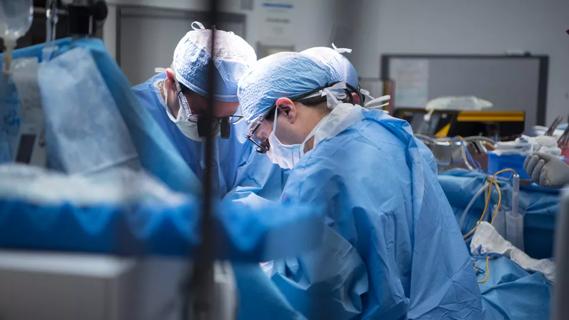
ctDNA should be incorporated into care to help stratify risk pre-operatively and for post-operative surveillance

The importance of raising awareness and taking steps to mitigate these occurrences
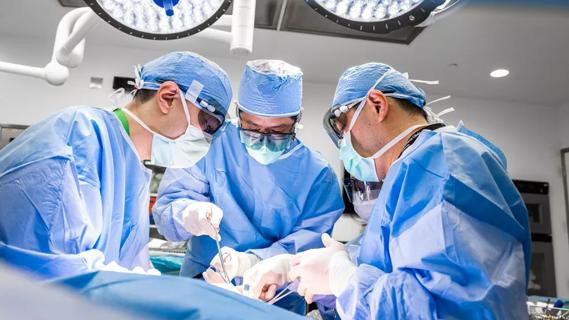
New research indicates feasibility and helps identify which patients could benefit
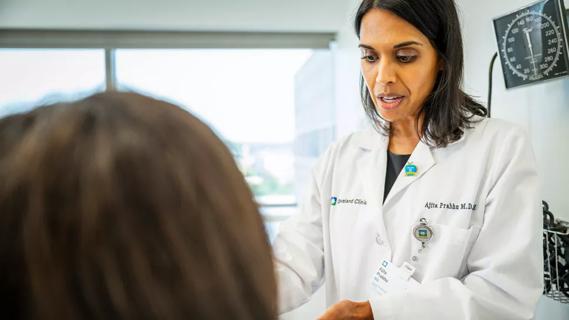
Treating a patient after a complicated hernia repair led to surgical complications and chronic pain
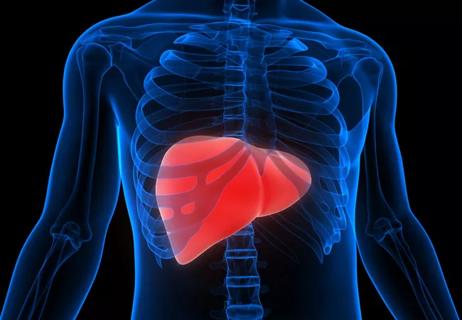
Standardized and collaborative care improves liver transplantations
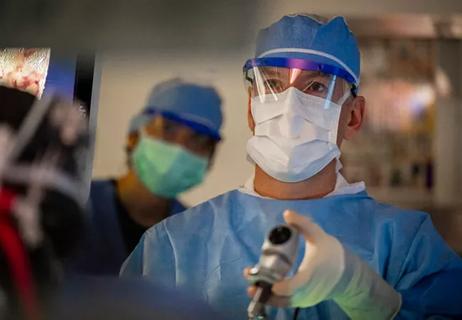
Fewer incisions and more control for surgeons

Caregiver collaboration and patient education remain critical